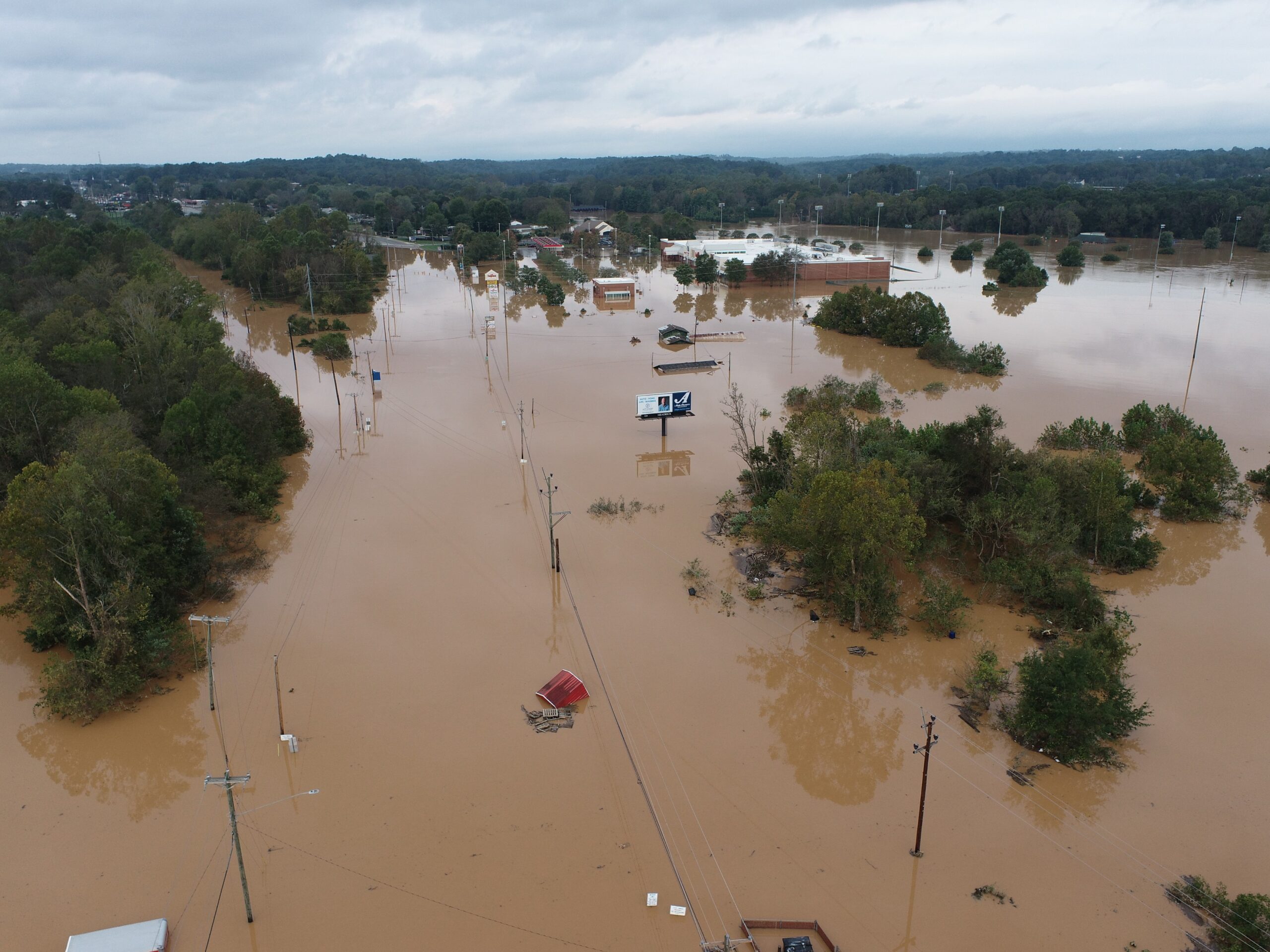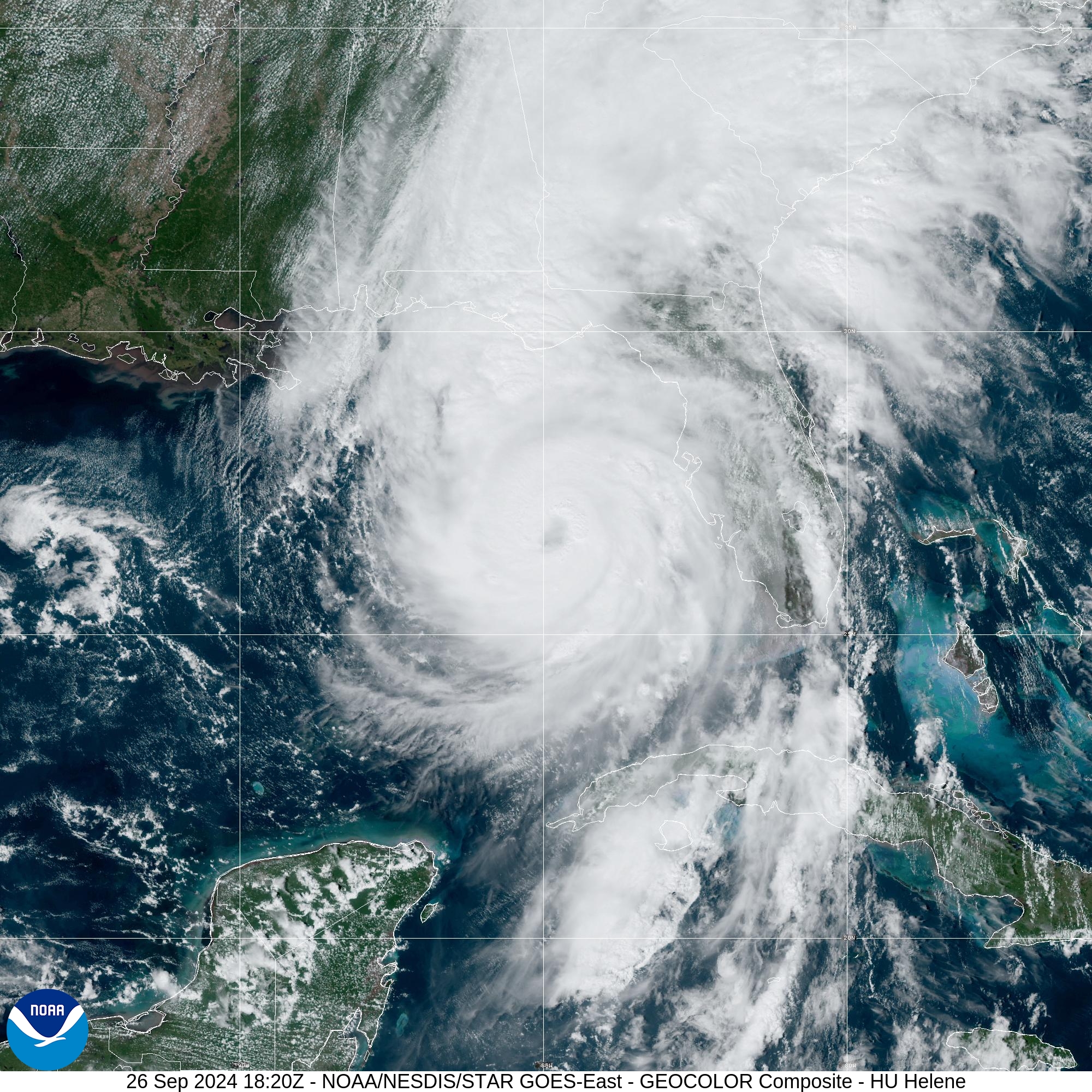What we’re watching: Weekly disaster update, September 30

We know all too well that disaster can strike anytime, anywhere in the world. Some disasters make headlines; others do not. Here at the Center for Disaster Philanthropy (CDP), we monitor the status of disasters worldwide and compile a list of the ones we’re tracking weekly, along with relevant disaster-related media coverage.
Here’s what we’re watching for the week of Sept. 30, 2024.
New or Emerging Disasters
Hurricane Helene – Multiple States: Hurricane Helene is being called North Carolina’s “own Hurricane Katrina.” While the Category 4 storm made landfall as the biggest storm to hit Florida’s Big Bend region, its effects were felt more than 800 miles inland. The landfall near Perry, Florida, marks the third storm in 13 months to make landfall in that region, including Hurricane Debby last month and Hurricane Idalia in August 2023.
The total death toll rose to 137 people across Florida, Georgia, South Carolina, North Carolina, Tennessee and Virginia as of Oct. 1 at 11 a.m. EDT. Many areas are without telecommunications and are inaccessible, so the number may be higher. In Buncombe County, around 600 people are unaccounted for, but hopefully, that number will drop as communication systems are restored– the number dropped from 1,000 on Sept. 29.
As of 12:30 p.m. EDT on Oct. 1, PowerOutage.us reports nearly 1.15 million customers without power in the states affected by Helene, including Florida, Georgia, South Carolina, North Carolina and Virginia. Some areas are expected to be without power for several weeks.
Like Debby this year and Florence in 2018, Helene’s most significant impacts were storm surge (about 15 feet where it came ashore) and flooding (western North Carolina saw 29 inches of rain), not just the winds typically associated with hurricanes. Many areas affected are not considered flood zones, and homeowners are less likely to have purchased insurance from the National Flood Insurance Program; typical homeowners’ insurance does not cover flood damage.
For advice on how donors can help, CDP maintains a 2024 Atlantic Hurricane Season disaster profile.
Join us this Thursday, Oct. 3
Webinar: Hurricane Helene: How funders can support recovery

Floods and Landslides – Nepal: Rain (as much as 12.7 inches) on Sept. 27 and 28 led to massive flash flooding and several landslides in Nepal, trapping hundreds of people on highways and damaging more than 300 homes. There are reports of at least 209 deaths, 101 injuries and 42 people missing. The rain caused Kathmandu’s main river, the Bagmati, to reach a height of seven feet past the danger level. About 3,600 people have been rescued in the Kathmandu Valley. A flood warning has been issued in Bihar, India, because of the floods in Nepal.
Previous/Ongoing Disasters
South America – Wildfires: Ongoing fires in Brazil, especially in the Brazilian Pantanal, the world’s largest tropical wetland, have destroyed more than 3.12 million acres of land in 2024. As of mid-September, there had been more than 180,000 fires this year.
Deforestation and natural decadal variability have reduced yearly rainfall totals over the last forty years. This, along with unusually hot and dry weather conditions due to climate change, has contributed to a devastating 40% increase in the intensity of wildfires. Indigenous communities are among the worst affected groups by these fires. Along with being displaced, Indigenous people face the destruction of their traditional lands and cultural practices.
Wildfires – Greece: At least 27 wildfires broke out between Sept. 28 and Sept. 29 in Greece. Most were contained swiftly, but at least one village required evacuation. Greece experienced its biggest wildfire in August.
Wildfires – North America: Firefighters got control of two of the three major wildfires in California. The state surpassed one million acres burned this year.
In Canada, the captive caribou breeding program is making a comeback after this summer’s fires in Jasper, but glaciers are melting faster because of wildfire smoke.
Cholera – Sudan: Floods in August and September have increased the number of cholera cases in the country.
The Sudan Tribune said, “Sudan reported 271 new cholera cases on Saturday, bringing the total to 15,577 with 506 deaths since the outbreak began in August, the health ministry said. The epidemic has spread to 58 localities across ten states, fueled by heavy rains and floods that have left stagnant water, ideal breeding grounds for the disease.”
In addition to the disasters listed above, we actively monitor the following disasters or humanitarian emergencies. For more information, see the relevant disaster profiles, which are updated regularly.
- 2024 South Asia Floods
- Horn of Africa Hunger Crisis
- Sudan Humanitarian Crisis
- 2024 West and Central Africa Floods
- Super Typhoon Yagi
- 2024 Central and Eastern Europe Floods
Complex Humanitarian Emergencies – Somalia
Many places worldwide are experiencing emergencies caused by conflict, climate change, drought, famine, economic challenges and other conditions that combine to create a complex humanitarian emergency (CHE). CDP maintains complete profiles on several CHEs, and what CDP considers Level 1 CHEs are profiled in this weekly blog post and tracked.
Persistent shocks such as droughts and floods, conflict and insecurity, disease outbreaks, and poverty continue to exacerbate humanitarian needs in Somalia. The combined impacts of climate and conflict make recovery and strengthening resilience a challenge.
More frequent swings from a strong El Niño to a strong La Niña are anticipated, and Somalia is among the countries most at risk of humanitarian impacts from La Niña in 2024-2025. Changes in sea surface temperatures can cause shifts in atmospheric pressure and winds, leading to changes in rainfall patterns and temperature.
In September, the World Food Programme warned that millions of people in Somalia are at risk of falling deeper into hunger due to below-average rainfall between October and December 2024 linked to the La Niña weather phenomenon. Providing immediate assistance while also strengthening long-term resilience is critical.
What We’re Reading
- Disenfranchised by climate change – Climate Central: “Climate change affects everything, including the right to vote — a foundational and core right in democracies. Wicked weather increasingly threatens the exercise of that right by making it harder for people to register to vote, to get to the polls, and to have their ballots counted. And in 2024, already a record-breaking year for global average temperature, more than 80 countries — home to more than half the world’s population — are holding nationwide elections.”
- Social isolation could be a factor in why more older men are dying from extreme heat – 19th News: “U.S. men, who are less likely to have social networks or ask for help, are proving to be more vulnerable to heat-related deaths than women.”
- This winding LA highway is notoriously treacherous. Extreme weather is making it worse – The Guardian: The 40 miles of Interstate 5 near Tejon Pass is used by 80,000 vehicles daily. Locals call it “the Grapevine” due to its location near the state’s agricultural hub. “But for those willing to see it, the Grapevine offers something else: a window onto the effects of extreme weather as a changing climate brings more storms, more flames, more landslides and more flooding.”
- These women are trying to humanize the climate crisis – 19thNews: Potential Energy is a marketing company that uses research to organize campaigns to talk about the climate crisis. Their mission is “to help audiences better understand climate change through emotionally engaging narratives that put them at the center of the story.” This article discusses their Act of Man campaign that features moms affected by climate change telling their stories. The Unnatural Disasters campaign emphasizes a key CDP message – disasters are not natural occurrences.
- Climate change and high exposure increased costs and disruption to lives and livelihoods from flooding associated with exceptionally heavy rainfall in Central Europe – World Weather Attribution: This is a rapid assessment of the impact of “human-induced climate change” on the recent rain affecting two million people across Central and Eastern Europe.
- World famous Santorini Wines endangered by climate change – Greek Reporter: Santorini wine production dates back to the 3rd millennium BC but is now at risk because of climate change. Santorini Wines are known for the lack of cultivation or interference by people and feature 30 ancient Greek Indigenous varieties. However, drought this year resulted in less than 25% of the normal harvest.
- Brick by brick, Morocco rebuilds 12th Century mosque destroyed by 2023 quake – VOA: The 900-year-old Great Mosque of Tinmel in Morocco was undergoing restoration when the earthquake hit in 2023, causing much of it to collapse on itself. More than a year later, the painstaking rebuilding process has begun.
- Indonesia’s forest fires, deforestation decline in past 10 years: govt – Antara: “Environment and Forestry Minister Siti Nurbaya Bakar stated that forest fires and deforestation in Indonesia had declined drastically in the last 10 years.”
A moment of hope… Drone footage shared by the Associated Press shows a newborn orca calf swimming with its mother off the coast of Washington State. The Orca Southern Resident killer whales (SRKW) were deemed endangered by Washington state in 2004 and added to the federal list in 2005. According to the Washington Department of Fish and Wildlife, “As NOAA points out in its 5-year review for SRKW, some of the downlisting criteria have been met, but the population continues to shrink. As of the July 2023 census, only 75 individuals remain.” Perhaps this baby is 76?
